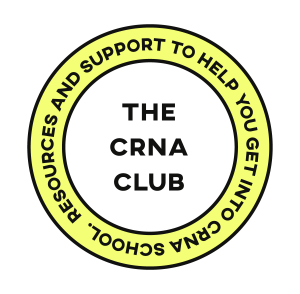If you're considering a career as a Certified Registered Nurse Anesthetist (CRNA), the application process can feel overwhelming. With CRNA programs being highly competitive, understanding key factors and preparing thoroughly can make all the difference. In this guide, we'll share crucial tips to help you stand out as an applicant, from mastering the CRNA role to preparing for interviews. Whether you're researching CRNA program requirements or seeking insider advice, these insights will boost your chances of success.
1. Understanding the CRNA Role: A Hands-On Approach
CRNAs play a unique role in the healthcare system, providing one-on-one care during surgeries, unlike other advanced practice nurses like nurse practitioners who manage multiple patients simultaneously. CRNAs are responsible for administering anesthesia and performing critical procedures, such as intubations and catheter insertions, ensuring patient safety throughout the surgical process.
Key Tip: Shadow a CRNA
- Aim for at least 24 hours of CRNA shadowing experience; some applicants may have upwards of 40 hours.
- Shadowing helps you gain real-world insight into the role and responsibilities of a CRNA and prepares you to answer application and interview questions about the day-to-day duties of a Certified Registered Nurse Anesthetist.
Having direct experience with CRNA professionals will give you a stronger understanding of the job and reflect your commitment to the career.
2. Know the CRNA Program Requirements: Political Landscape and Opt-Out States
CRNA practice laws vary by state, and the political landscape around CRNA independence is a hot topic in healthcare. Some states allow CRNAs to practice without physician supervision, also known as "opt-out states." These legislative issues often appear in CRNA school interviews or essays, so it's critical to stay informed about them.
How to Stay Informed:
- Attend CRNA association meetings or events hosted by the American Association of Nurse Anesthetists (AANA).
- Research opt-out states and the ongoing legislative push for CRNA independence, as this knowledge showcases your awareness of professional challenges in the field.
Being well-versed in these topics will demonstrate that you're proactive and aware of the broader political and professional landscape, giving you an edge during your interview.
3. The Impact of CRNAs on Healthcare: Why It Matters
As a prospective CRNA, it's essential to understand the impact that nurse anesthetists have on the healthcare system, particularly in terms of cost-effectiveness and access to care. CRNAs are often the sole anesthesia providers in rural and underserved areas, making healthcare more affordable and accessible.
Why This Matters for Your Application:
- CRNAs help reduce healthcare costs by practicing independently, without requiring supervision from an anesthesiologist.
- In many rural areas, CRNAs are critical for expanding access to anesthesia services, addressing the shortage of anesthesia providers.
Be ready to discuss how CRNAs contribute to the solution of the provider shortage and why their role is vital to the healthcare system. This understanding can be a significant talking point in your CRNA school interview.
Additional CRNA School Tips for Applicants:
- Build a Strong ICU Background: CRNA programs typically require at least one year of experience in a critical care setting, such as the ICU. The more diverse and extensive your experience, the better.
- Master Time Management Skills: CRNA school is academically demanding. Demonstrating effective time management and organizational skills in your application can help set you apart.
- Prepare for the Interview: Interviews are a crucial part of the application process. Practice answering common CRNA school interview questions, such as why you want to become a CRNA or how you handle high-pressure situations.
- Stay Organized with Application Deadlines: CRNA programs often have strict application deadlines, so start early and track each school’s requirements to ensure you don’t miss any important dates.
Final Thoughts: Becoming a Competitive CRNA School Applicant
Applying to CRNA school is an intense process, but with preparation and a clear understanding of the nurse anesthesia profession, you can increase your chances of acceptance. By gaining shadowing experience, staying informed about legislative issues, and showcasing your dedication to advancing the field, you’ll be ready to succeed in your application.
Ready to take the next step in your CRNA journey?
Subscribe to our newsletter for expert tips, CRNA school updates, and resources to help you on your path to becoming a Certified Registered Nurse Anesthetist. Plus, don't miss our free 30-Minute Masterclass, "Becoming a Competitive CRNA School Applicant," for more in-depth advice on standing out as an applicant!


